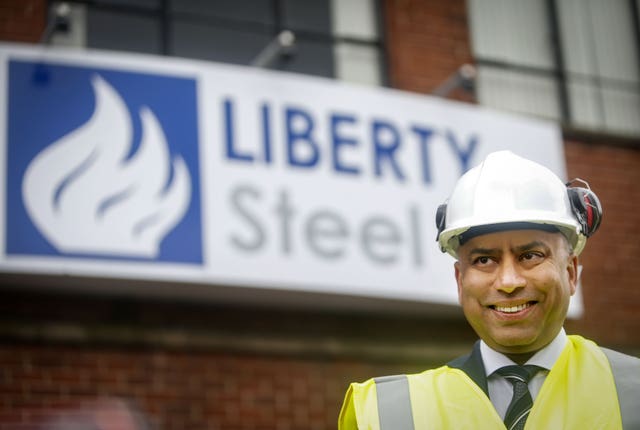
Ben Kentish 10pm - 1am
21 July 2021, 11:04

Business Secretary Kwasi Kwarteng said a Government intervention to prop up Liberty Steel is not off the table.
Steel tycoon Sanjeev Gupta should still be allowed to control Liberty Steel despite concerns over poor corporate governance and opaque financing at his company, a Government minister has said.
Kwasi Kwarteng, the Secretary of State for Business, Energy and Industrial Strategy (BEIS), told MPs he believes the businessman’s company GFG Alliance could raise the funds to save the firm.
But, he added, contingency plans are being drawn up should the Government need to step in.
Mr Gupta previously asked the Government for a £170 million grant in March to support Liberty Steel, but this was rejected due to concerns the money would be used to pay down debts at GFG rather than through reinvestment in the steel business.

Mr Gupta’s GFG Alliance, a loose collection of industrial companies linked to Mr Gupta and his family, has faced criticism from MPs over its financial arrangements and its relationship with Greensill Capital, which collapsed last year.
Taking questions from the BEIS select committee, Mr Kwarteng said: “If for whatever reason the refinancing doesn’t work out we have options… we are considering options of how we can take things forward.”
The minister added: “I’ve always said that we’ve got to wait and see what happens because the nature of the collapse of the financing, the nature of the state of the business is actually in will determine Government’s action.
“It could well be that there’s another buyer and that’s something we would have to investigate.”
He also explained that a commitment had been made to allow GFG to continue to run the business, saying: “Even though GFG and the Gupta family group had financial difficulties, if Mr Gupta could refinance those assets it’s only right for us to give him the chance to do that… to intervene now would breach that commitment.
“Previously £170 million was asked for from the Government, which was rejected.
“He said he wants to find private financing with his lenders and we have to see that process through.”
MPs pointed out that the Government had provided support to Tata Steel in the past to save jobs, but the minister said the proposals from the rival firms were substantively different.
On the Tata proposals, he added: “There was much more clarity and assurance that any support we provided would stay in the plant and stay in the UK.
“There was far less transparency in regards to Mr Gupta’s request than there was with Tata’s and the situation is completely different.”
He added: “GFG had an opaque financing structure.”
The minister insisted that Liberty Steel still has a viable future in the UK but needed investment to realise its potential.
He also said the Government is looking at ways to ensure more UK-produced steel is used in infrastructure projects in the country, pointing out that state aid and competition rules under the EU could now be changed following the UK’s exit from the trading bloc.
Mr Kwarteng added: “Having left the EU we can have a much more flexible approach to issues of public procurement and sourcing a lot of materials we use here in the UK.
“I’m hopeful we can do more to help our industry through a much more rigorous process of public procurement.”
BEIS set up a steel task to look at the future of the industry and the minister said he expects them to report back later this year.
He said: “We should be able to have something quite concrete by the end of the year.”
Facing a range of questions over the industry and its future, Mr Kwarteng said he wanted to avoid the ad-hoc nature the Government has been forced to intervene to prop up the UK steel industry and set out a longer term strategy for the sector, which he said is a “strategic asset for the UK”.